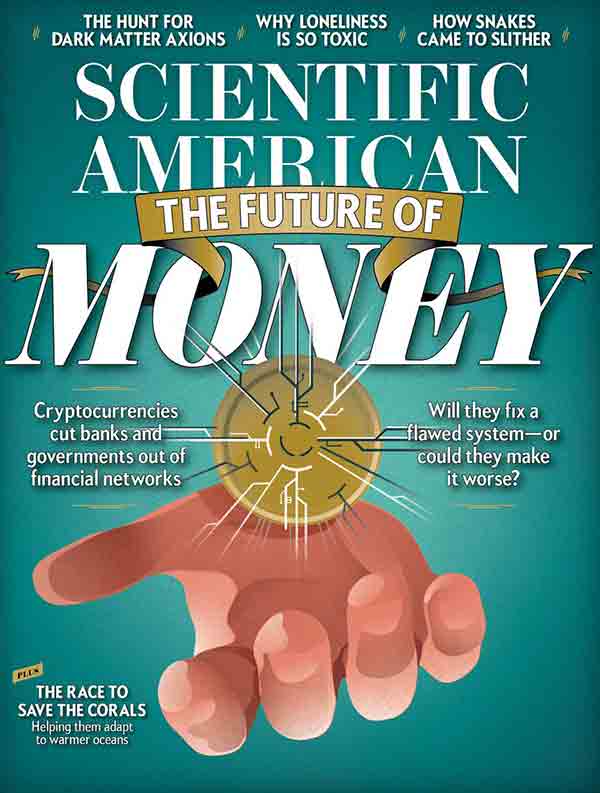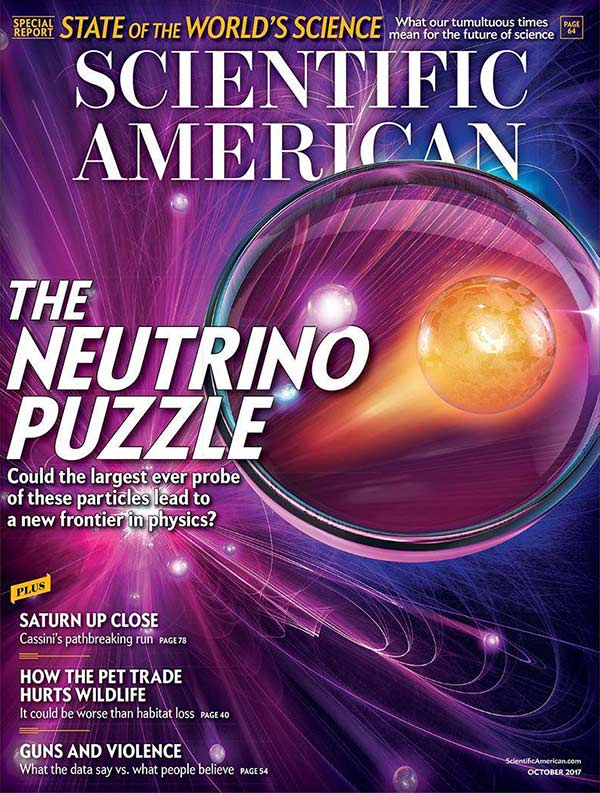Audible Inc., the world’s largest producer and provider of downloadable audiobooks and other spoken-word entertainment, in conjunction with The Great Courses, is creating audio-only, non-fiction content for Audible’s millions of listeners. The first three titles include Dr. Michael Shermer’s new and original course on: Conspiracies & Conspiracy Theories: What We Should Believe and Why.
Order today
Watch Dr. Shermer’s introduction
Brief Course Description
What is the difference between a conspiracy and a conspiracy theory? Who is most likely to believe in conspiracies, and why do so many people believe them? Is there some test of truth we can apply when we hear about a conspiracy that can help us determine if the theory about it is true or false? In this myth-shattering course, world-renowned skeptic and bestselling author Dr. Michael Shermer tackles history’s greatest and widespread conspiracy theories, carefully deconstructing them on the basis of the available evidence. In the current climate of fake news, alternative facts, and the rise of conspiracy theories to national prominence and political influence it is time to consider how to distinguish true conspiracies (Lincoln’s assassination, the Pentagon Papers, Watergate) from false conspiracy theories (Sandy Hook, 9/11, fake moon landing). You learn how conspiracies arise, what evidence is used to support them, and how they hold up in the harsh light of true historical, even scientific analysis, as well as why people believe them. Illuminating and compelling, the next time you hear someone talking about a conspiracy theory, this course just may give you the detective skills to parse the truth of the claim.
Conspiracies & Conspiracy Theories consists of 12 lectures, 30-minutes each.
PART I: Conspiracies & Why People Believe Them
-
The Difference Between Conspiracies and Conspiracy Theories
-
Classifying Conspiracies and Characterizing Believers
-
Why People Believe in Conspiracy Theories
-
Cognitive Biases and Conspiracy Theories
-
Conspiracy Insanity
-
Constructive Conspiracism
PART II: Conspiracy Theories & How to Think About Them
-
The Conspiracy Detection Kit
-
Truthers and Birthers: The 9/11 and Obama Conspiracy Theories
-
The JFK Assassination: The Mother of All Conspiracy Theories
-
Real Conspiracies: What if They Really Are Out to Get You?
-
The Deadliest Conspiracy Theory in History
-
The Real X-Files: Conspiracy Theories in Myth and Reality
Bonus Lecture: Letters from Conspiracists
Order today
Watch Dr. Shermer’s introduction
About Michael Shermer
Dr. Michael Shermer is the Publisher of Skeptic magazine, a Presidential Fellow at Chapman University, the host of the Science Salon podcast, and for 18 years a monthly columnist for Scientific American. He is the author of a number of New York Times bestselling books including: Heavens on Earth, The Moral Arc, The Believing Brain, Why People Believe Weird Things, Why Darwin Matters, The Mind of the Market, How We Believe, and The Science of Good and Evil. His two TED talks, viewed nearly 10 million times, were voted in the top 100 of the more than 2000 TED talks. Dr. Shermer received his B.A. in psychology from Pepperdine University, M.A. in experimental psychology from California State University, Fullerton, and his Ph.D. in the history of science from Claremont Graduate University.
View all titles by Michael Shermer on Audible.com.
You play a vital part in our commitment to promote science and reason. If you enjoy the content Michael Shermer produces, please show your support by making a donation, or by becoming a patron.
Comments Off on Conspiracies & Conspiracy Theories:
What We Should and Shouldn’t Believe—and Why
Do anomalies prove the existence of God?
This op-ed was originally published on Slate.com as part of a Big Ideas series on the question “What is the Future of Religion” in 2015.
For a quarter century I have investigated and attempted to explain anomalous events that people report experiencing, and I have written about a few of my own, such as being abducted by aliens (caused by extreme fatigue and sleep deprivation), hallucinating inside a sensory deprivation tank, and having an out-of-body experience while my temporal lobes were stimulated with electro-magnetic fields. Most people interpret such experiences as evidence for the supernatural, the afterlife, or even God, but since mine all had clear and obvious natural explanations few readers took them to be evidentiary.
In my October, 2014 column in Scientific American entitled “Infrequencies” however, I wrote about an anomalous experience for which I have no explanation. In brief, my fiancé, Jennifer Graf, moved to Southern California from Köln, Germany, bringing with her a 1978 Phillips 070 transistor radio that belonged to her late grandfather Walter, a surrogate father figure as she was raised by a single mom. She had fond memories of listening to music with him through that radio so I did my best to resurrect it, without success. With new batteries and the power switch left in the “on” position, we gave up and tossed it in a desk drawer where it lay dormant for months. During a quiet moment after our vows at a small wedding ceremony at our home, Jennifer was feeling sad being so far from home and wishing she had some connection to loved ones—most notably her mother and her grandfather—with whom to share this special occasion. We left my family to find a quiet moment alone elsewhere in the house when we heard music emanating from the bedroom, which turned out to be a love song playing on that radio in the desk drawer. It was a spine-tingling experience. The radio played for the rest of the evening but went quiescent the next day. It’s been silent ever since, despite repeated attempts to revive it. (continue reading…)
Comments Off on Frequent Infrequencies
The rise of the atheists

In recent years much has been written about the rise of the “nones”—people who check the box for “none” on surveys of religious affiliation. A 2013 Harris Poll of 2,250 American adults, for example, found that 23 percent of all Americans have forsaken religion altogether. A 2015 Pew Research Center poll reported that 34 to 36 percent of millennials (those born after 1980) are nones and corroborated the 23 percent figure, adding that this was a dramatic increase from 2007, when only 16 percent of Americans said they were affiliated with no religion. In raw numbers, this translates to an increase from 36.6 million to 55.8 million nones. Though lagging far behind the 71 percent of Americans who identified as Christian in the Pew poll, they are still a significant voting block, far larger than Jews (4.7 million), Muslims (2.2 million) and Buddhists (1.7 million) combined (8.6 million) and comparable to politically powerful Christian sects such as Evangelical (25.4 percent) and Catholic (20.8 percent).
This shift away from the dominance of any one religion is good for a secular society whose government is structured to discourage catch basins of power from building up and spilling over into people’s private lives. But it is important to note that these nones are not necessarily atheists. Many have moved from mainstream religions into New Age spiritual movements, as evidenced in a 2017 Pew poll that found an increase from 19 percent in 2012 to 27 percent in 2017 of those who reported being “spiritual but not religious.” Among this cohort, only 37 percent described their religious identity as atheist, agnostic or “nothing in particular.”
Even among atheists and agnostics, belief in things usually associated with religious faith can worm its way through fissures in the materialist dam. A 2014 survey conducted by the Austin Institute for the Study of Family and Culture on 15,738 Americans, for example, found that of the 13.2 percent who called themselves atheist or agnostic, 32 percent answered in the affirmative to the question “Do you think there is life, or some sort of conscious existence, after death?” Huh? Even more incongruent, 6 percent of these atheists and agnostics also said that they believed in the bodily resurrection of the dead. You know, like Jesus. (continue reading…)
read or write comments (42)
Combating science denial with science pleasure
That conservatives doubt scientific findings and theories that conflict with their political and religious beliefs is evident from even a cursory scan of right-leaning media. The denial of evolution and of global warming and the pushback against stem cell research are the most egregious examples in recent decades. It is not surprising, because we expect those on the right to let their politics trump science—tantamount to a dog-bites-man story.
That liberals are just as guilty of antiscience bias comports more with accounts of humans chomping canines, and yet those on the left are just as skeptical of well-established science when findings clash with their political ideologies, such as with GMOs, nuclear power, genetic engineering and evolutionary psychology—skepticism of the last I call “cognitive creationism” for its endorsement of a blank-slate model of the mind in which natural selection operated on humans only from the neck down.
In reality, antiscience attitudes are formed in very narrow cognitive windows—those in which science appears to oppose certain political or religious views. Most people embrace most of science most of the time.
Who is skeptical of science, then, and when?
That question was the title of an October 2017 talk I attended by Asheley R. Landrum, a psychologist at Texas Tech University, who studies factors influencing the public understanding and perception of science, health and emerging technologies. She began by citing surveys that found more than 90 percent of both Republicans and Democrats agreed that “science and technology give more opportunities” and that “science makes our lives better.” She also reviewed modest evidence in support of the “knowledge deficit hypothesis,” which posits that public skepticism of science is the result of inadequate scientific knowledge. Those who know more about climate science, for example, are slightly more likely to accept that global warming is real and caused by humans than those who know less on the subject. (continue reading…)
read or write comments (11)
Is belief in aliens a religious impulse?
In Star Trek V: The Final Frontier, Captain James T. Kirk encounters a deity that lures him to its planet in order to abscond with the Enterprise. “What does God need with a starship?” the skeptical commander inquires. I talked to Kirk himself—William Shatner, that is—about the film when I met him at a recent conference. The original plot device for the movie, which he directed, was for the crew to go “in search of God.” Fearful that some religious adherents might be offended that the Almighty could be discoverable by a spaceship, the studio bosses insisted that the deity be a malicious extraterrestrial impersonating God for personal gain.
How could a starship—or any technology designed to detect natural forces and objects—discover a supernatural God, who by definition would be beyond any such sensors? Any detectable entity would have to be a natural being, no matter how advanced, and as I have argued in this column [see “Shermer’s Last Law”; January 2002], “any sufficiently advanced extraterrestrial intelligence [ETI] is indistinguishable from God.” Thus, Shatner’s plot theme of looking for God could only turn up an ETI sufficiently advanced to appear God-like. (continue reading…)
read or write comments (26)




